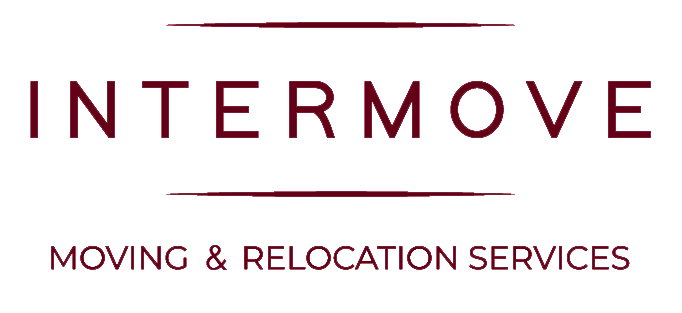Moving to Bosnia-Herzegovina is nowadays appealing for many expats: the vast array of activities and opportunities that this country offers are a big incentive both to tourism and to longer stay.

Relocating to Bosnia-Herzegovina
The Land and Its People
Located in south-eastern Europe on the Balkan Peninsula, Bosnia-Herzegovina has been an independent country since 1992. It is almost entirely landlocked, apart from a short coastline on the Adriatic Sea, and is bordered by Croatia, Serbia, and Montenegro. The country is named after the two regions located within its borders, which do not have a border between them and are used to define regions of the country and not ethnicities. Due to its tumultuous history, Bosnia-Herzegovina has distinct demographics, and is the only country to call its main ethnic groups ‘constituent peoples’, of which there are three main groups: Bosniaks, Serbs, and Croats. These three groups account for the majority of Bosnia-Herzegovina’s population of nearly four million people, but there are also large groups of Montenegrins, Albanians, and Romani, as well as a growing number of expatriates. Although the Bosnian constitution does not specify any official languages, the most widely spoken are Bosnian, Croatian, and Serbian; English is also very commonly spoken in the major cities.
The Climate in Bosnia-Herzegovina
As Bosnia-Herzegovina has a diverse geography, including everything from urban areas to forests and mountainous regions, the climate will vary depending on where you are in the country. As a result, expatriates living in inland Bosnia-Herzegovina will experience a continental climate, whereas those moving to Bosnia-Herzegovina’s southern coastal regions will need to adjust to a Mediterranean climate. The inland areas of the country are drier than many other regions with a similar climate, but rain is common all year round on the coast. The climate is at its most extreme in the mountainous areas inland, where short, cool summers give way to long, harsh winters with very cold temperatures. The southern part of Bosnia-Herzegovina is much warmer and has longer summers and less extreme winters.
Getting to Bosnia-Herzegovina
Moving to Bosnia-Herzegovina is made relatively easy by its established transportation network and its close proximity to larger European nations. Many expatriates moving to Bosnia-Herzegovina will enter the country at its main international airport, Sarajevo International Airport, then continue their journey by road or by train. Although there are other airports located in the country, Sarajevo is the largest and best connected. Although Bosnia-Herzegovina does have a number of ports located on the River Sava, they are not suited for shipping furniture and belongings from around the world, as they are all located inland. Therefore, many expatriates moving to Bosnia-Herzegovina will have their belongings shipped to nearby European countries and then transported to Bosnia-Herzegovina by road or train. Bosnia-Herzegovina also has direct rail links with nearby Croatia, Serbia, and Montenegro.

A practical guide to the way of life in Bosnia-Herzegovina
Bosnia-Herzegovina is a “heart-shaped country”, located where Eastern and Western Europe meet. The country has a complicated history and therefore a very rich heritage, and can boasts of both seaside and mountains. Find out more information in our guide!
Life in Bosnia-Herzegovina
Healthcare in Bosnia-Herzegovina
Although Bosnia-Herzegovina does have a free, public healthcare system that expatriates are allowed to use, many foreigners living in Bosnia-Herzegovina choose to take out private medical insurance. This is because the public system is underfunded and understaffed, and many of the doctors will not speak English. Although there are some private medical facilities in Bosnia-Herzegovina, mainly located in Sarajevo and other large cities, many expatriates opt for international medical insurance, so that they can travel to a nearby European nation with a better standard of healthcare, like Croatia, for major operations or more delicate treatment. Some expatriates may even return to their home country if possible. Prescription medicines are readily available in pharmacies, but any specialist medication should be bought in advance in case it is hard to find.

Transportation in Bosnia-Herzegovina
Expatriates living in Bosnia-Herzegovina will need to apply for a Bosnian license if they wish to drive on the country’s 21,846 km of roads. The speed limits in Bosnia-Herzegovina are 60 km/h (37 mph) within inhabited places and 130 km/h (81 mph) on motorways. Bosnia-Herzegovina also has an established public transportation network, which includes 1,032 km of railways. The rail network is managed by two companies, ŽRS and ŽFBH, and operates across the country; there are also direct links to Serbia, Croatia, and Montenegro. However, whilst public transportation will be readily available in Sarajevo and other large urban areas, it may not be in rural regions. Therefore, expatriates are advised to check the transportation network for their particular region of Bosnia-Herzegovina.
Education in Bosnia-Herzegovina
Bosnia-Herzegovina has a free, public education system for children aged between six and 15. However, as many public schools will only teach in Bosnian, Serbian, or Croatian, many expatriates living in Bosnia-Herzegovina choose instead to send their children to an international school, where they can be taught in English and obtain internationally recognized qualifications. The teaching standards in international schools are often higher than in public schools. Currently, the only international schools in Bosnia-Herzegovina are located in Sarajevo, the capital city, the most notable of which are the QSI International School of Sarajevo, the International School of Bosnia, and the International School of Sarajevo. Bosnia-Herzegovina has a long tradition of higher education that dates back to the 16th century. This tradition is continued today by the country’s excellent university system, which is comprised of eight universities, including the University of Sarajevo and the University of Banja Luka.

Find out how to get a job and work in Bosnia-Herzegovina
Bosnia-Herzegovina is economically a very dynamic country with a bit potential: major cities in particular are attracting expats, and the country can count on a very strong service sectors, as well as a growing tourism sector. Find out more in our guide!
Employment in Bosnia-Herzegovina
Economic Overview
Since declaring independence in 1992, Bosnia-Herzegovina has grown to be one of the most dynamic economies in the south-eastern European region. Its total GDP (PPP) of 33.251 billion USD, or 8,589 USD per capita, has grown steadily since a period of turmoil in the mid to late 1990s, and the country is now establishing itself as an economic power in the region. Bosnia-Herzegovina’s economy is split into three main sectors: services (65.3% of total GDP), industry (26.4%), and agriculture (8.1%). Much of its economic output is concentrated in Sarajevo, the capital city, and other industrial cities like Mostar. Tourism is also a growing sector, and it is estimated that Bosnia-Herzegovina will have the third highest tourism growth rate in the world between 1995 and 2020. Expatriates working in Bosnia-Herzegovina tend to do so for NGOs, in ambassadorial or governmental positions, in senior industrial roles, or as English teachers.
Work Permits for Bosnia-Herzegovina
Expatriates working in Bosnia-Herzegovina will need a work permit. Although Bosnia-Herzegovina is a candidate for EU membership, it is not yet a member of the European Union, so this also applies to EU/EEA nationals. Obtaining a work permit for Bosnia-Herzegovina can be a lengthy process, so you are advised to apply in advance. In order to apply for a permit to work in Bosnia-Herzegovina, you will need to have already secured work in the country, as your prospective employer will need to apply to the country’s Employment Service on your behalf. Once this has been done, the Federal Employment Agency will issue an approval for the employment of foreign persons for your prospective place of work, after which you can apply through your local embassy or consulate. Work permits are issued on a temporary basis, and are usually only active for a period of up to one year.
Income Taxation in Bosnia-Herzegovina
Expatriates living and working in Bosnia-Herzegovina will be required to pay income tax on their earnings. Unlike many other European nations, Bosnia-Herzegovina does not use a progressive, sliding scale income tax system, and instead applies a flat tax of 10% to all income from employment, interest, royalties, and capital gains. As a result, it is a popular expatriate destination for high earners wanting to avoid progressive income tax systems. However, the income on which you pay income tax at Bosnian rates depends on your residency status in Bosnia-Herzegovina. If you live and work in Bosnia-Herzegovina for more than 183 days in a year, you are considered a resident for tax purposes, and will pay income tax at Bosnian rates on your worldwide income. If you live and work in Bosnia-Herzegovina for less than that, you will pay income tax at Bosnian rates on your Bosnian income only.
Social security contributions are added on top of this flat rate, and are used to pay for public services like education and healthcare. Like most other countries, the bulk of the contribution is paid by the employer, with the expatriate paying on average 33% of the cost.



